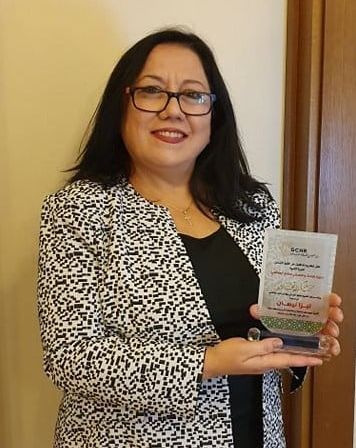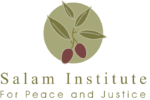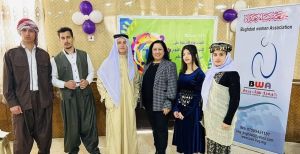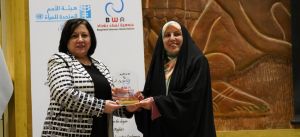
Liza Hido, Founder of Baghdad Women Association & Member of the Regional Network for Forgiveness & Reconciliation in the Arab Region.
In the “Voices of Peace” series, we are pleased to present an inspiring interview with Mrs. Liza Nissan Hido, the founder of the Baghdad Women’s Association and a member of the Reconciliation and Forgiveness Network in the Arab world.
The conflict in Iraq has involved sectarian, ethnic, and political disputes since the 2003 US invasion and the fall of Saddam Hussein’s government. Tensions have risen between Sunnis and Shiites, and the Kurds’ quest for independence has added to the complexity. The rise of ISIS in 2014, which led to the group’s control over large areas of Iraq, caused widespread violence and displacement. Although most territories were liberated from ISIS by 2017, the security situation remains unstable due to sporadic attacks and local conflicts. Reconstruction efforts are hindered by corruption and weak infrastructure, while national reconciliation remains difficult due to deep divisions and external pressures.
Liza has lived profound experiences in the field of peace and reconciliation in Iraq and is a graduate of the University of Technology in Baghdad, where she worked in the Iraqi Ministry of Finance for 25 years. However, her career extended to social and humanitarian work by establishing the Baghdad Women’s Association, which focuses on combating violence against women and girls and promoting peace and reconciliation in Iraq. In addition to being an active member of the Reconciliation and Forgiveness Network in the Arab world, which was established in May 2023 by the Salam Institute for Peace and Justice and the Life Foundation – Rasid.
Liza Nissan Hido has been involved in peacebuilding and conflict resolution in Iraq since the fall of Saddam Hussein’s government in 2003. At the time, there was great hope for building a new Iraq characterized by peace and coexistence. However, the reality was laden with shocks and conflicts, making the path to reconciliation difficult and fraught with challenges.
As Iraqis, trust between us as one people has been shaken, which has affected the possibility of reconciliation and forgiveness. I don’t want to forget the past, but I forgive and pardon because I believe in the Bible.
Under the umbrella of the Baghdad Women’s Association, Liza and her team worked to overcome sectarian sensitivities, promoting the principle of coexistence among all sects and religions in Iraq. In Liza’s view, the Baghdad Women Association is, as she puts it, “a miniature example of Iraq,” as it includes staff from all sects and religions. Religious or national affiliation was not a criterion for treatment; instead, the focus was on collective work for the common good.
Liza addressed her colleagues, saying, “May God bless you, keep Iraq in your eyes,” reflecting her deep belief in the need to maintain Iraq’s unity and work for its safety.
With the emergence of ISIS, the challenge was greater than ever. In Mosul, where Christian communities were displaced, Liza feared that her previous experiences would not be sufficient to address this crisis. However, due to her deep faith and commitment to forgiveness, she responded to the call to work with displaced women in the city. She says: “An international organization asked us to open a listening and guidance center for women and girls who are survivors or displaced in Mosul, given our experience in this field. I initially refused because I couldn’t help the women and girls whose families had been expelled from their homes.”
Liza shared one of the touching moments she faced when she decided to establish a listening and guidance center in the town of Qaraqosh after the displacement of women and girls. Here, Liza organized discussion sessions that brought together women from various religions and cultures, where they shared their stories and the painful experiences they had endured at the hands of ISIS fighters, who made no distinction between Christians and Muslims, thus helping to build trust and love among them. “This meeting was an example of how to sow trust and work towards reconciliation and forgiveness.”
Through every experience, Liza has always sought to rebuild trust and humanity. She says: “I made it clear to them that one of my colleagues in the association is named Mohammed, who is one of the people I trust the most and whom I call the light of my eyes. I do not accept that anyone comes and says that all Muslims blew up the church.” This awareness of the need to avoid generalizations and work on building trust is what helped her face challenges.
Through her work with the Baghdad Women’s Association, she participated in many initiatives aimed at promoting reconciliation and forgiveness. She says: “As women, we act as an early warning system, trying to resolve conflicts before they escalate. Unfortunately, in peace negotiations, the voices of women are often missing, but our role remains vital in building peace and understanding.”
Liza’s experience was not only in building peace but also in testing the strength of will and faith. She says: “What motivates me in my life is first my faith in the Lord and also my faith in us as humans.” When asked about the hope that drives her to continue despite all the difficulties, she replied: “My mother always taught us to love everyone without distinction. She was religious, prayed, and fasted a lot, but she never discriminated between people.”
But the journey was not easy, as Liza faced significant challenges in trying to bridge the gap between a painful past and a difficult present. She spoke about her experience in Mosul and how changing her concepts and perceptions was a slow process, accompanied by much patience and faith in humanity beyond religious or cultural identities. It was a necessary journey to deepen the faith in the need for reconciliation and forgiveness. Liza worked in various areas such as Anbar, the south, Mosul, Baghdad, and Kurdistan. Each experience was significant to her both personally and professionally.
She also spoke about her experience with the Reconciliation and Forgiveness Network in the Arab world, which was a new and important experience for her.
“This network remains an opportunity for communication, knowledge exchange, and strengthening efforts towards building peace.”
In the end, Mrs. Liza Nissan Hido’s story is a living testimony to the power of will and the ability to overcome hardships, embodying reconciliation and forgiveness in a country exhausted by conflicts and wars for decades.


